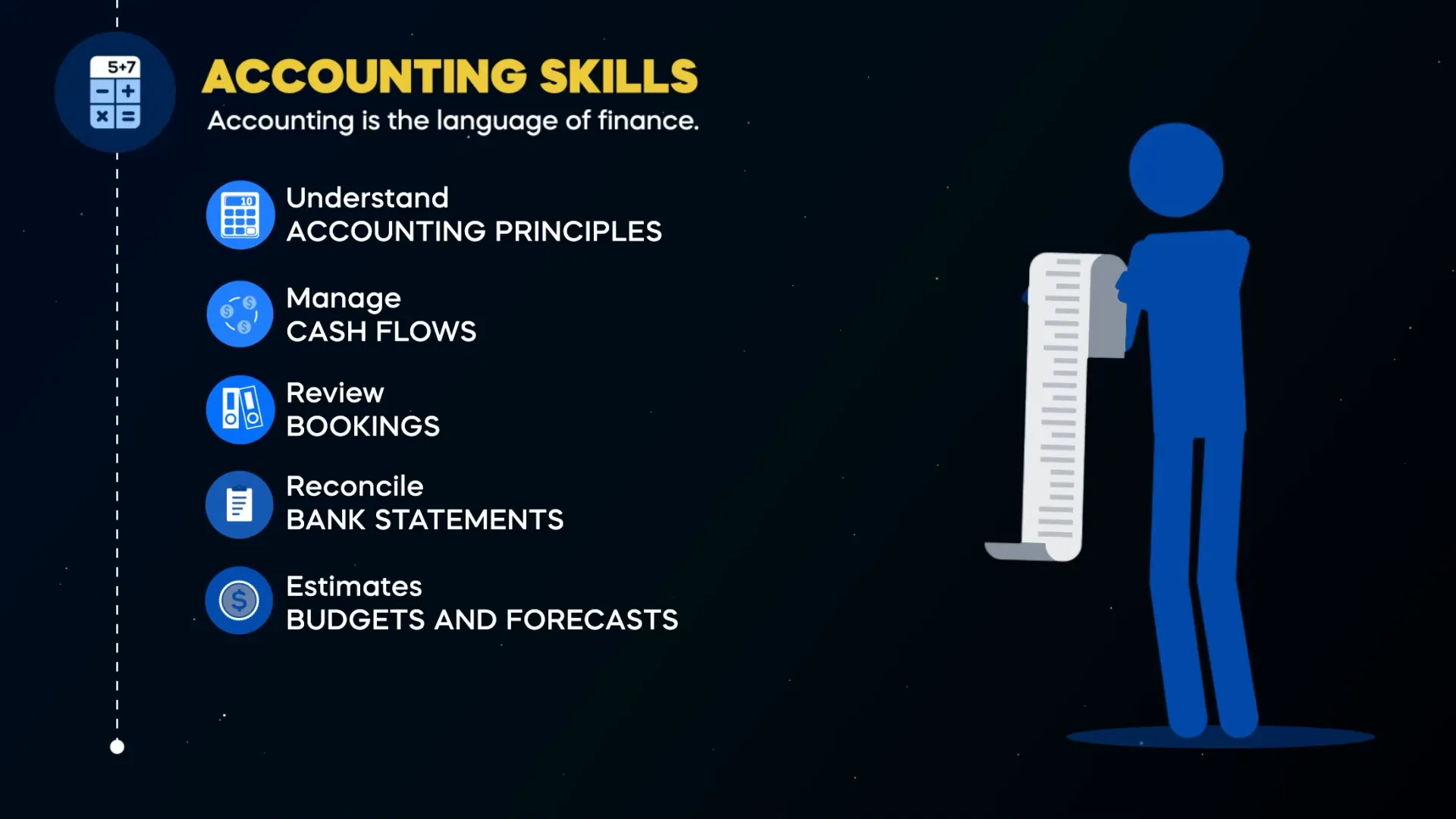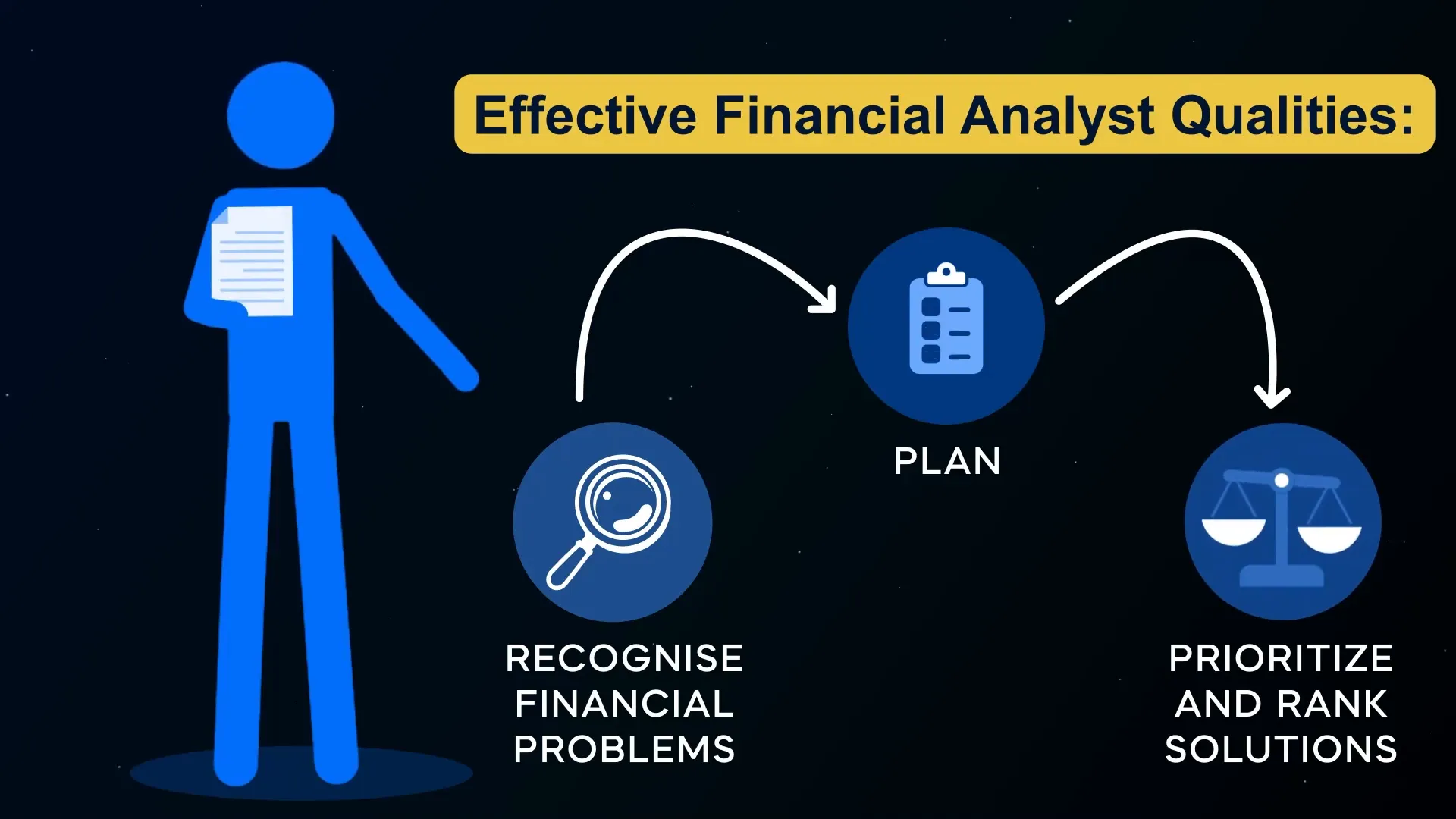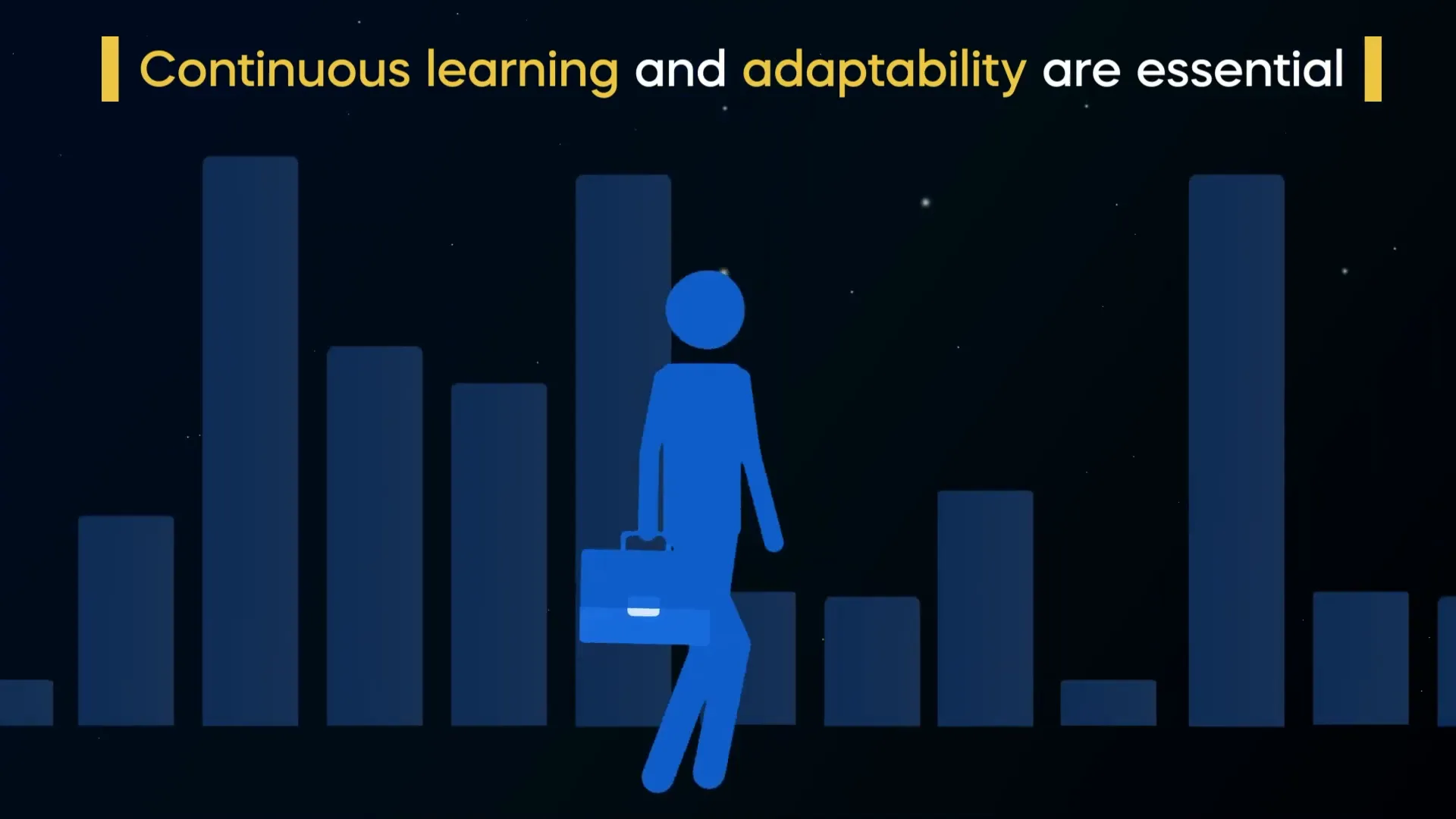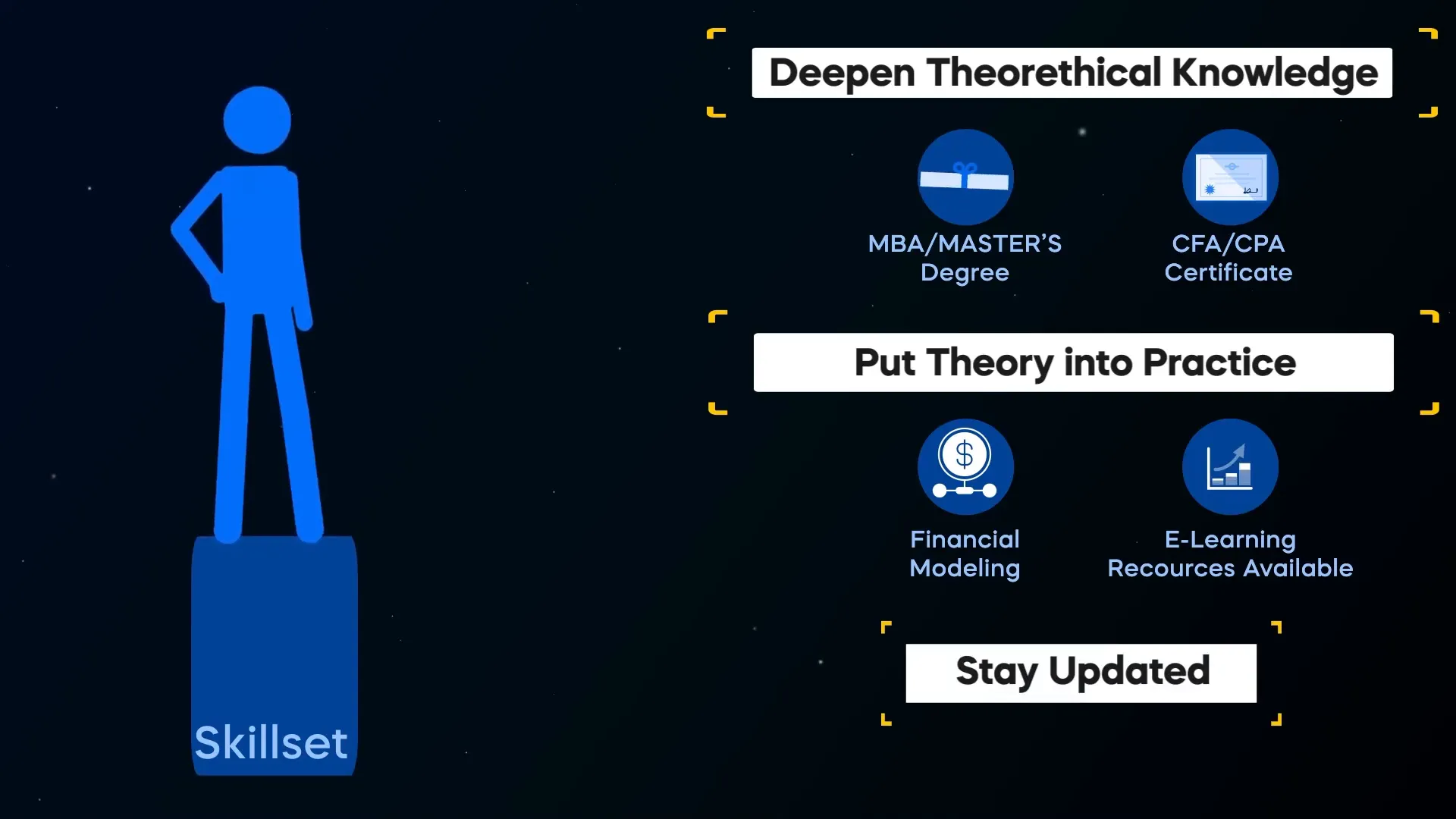
The Complete Roadmap for a Financial Analyst Career: Skills and Strategies for Success

Are you aspiring to excel in a Financial Analyst Career? This comprehensive guide will delve into the essential skills and strategies needed to thrive in this dynamic field, from technical proficiencies to effective communication.
Table of Contents
- 🌟 Introduction to Financial Analyst Careers
- 🛠️ The Essential Skills for Financial Analysts
- 📚 Understanding Accounting Fundamentals
- 🔍 Building and Interpreting Financial Models
- 💻 The Importance of Context and Technology
- 📊 Analytical Skills: The Story Behind the Numbers
- 🗂️ Organizational Skills and Attention to Detail
- 🧠 Critical Thinking and Problem Solving
- 📈 Continuous Learning and Adaptability
- 🎓 Pursuing Advanced Degrees and Certifications
- 📊 Staying Current with Industry Trends
- 🖥️ Technical Skills: Mastering Tools and Software
- 🤝 Networking and Real-World Experience
- ✅ Conclusion and Next Steps
- ❓ FAQ
🌟 Introduction to Financial Analyst Careers
A career as a financial analyst can be both rewarding and challenging. Financial analysts play a crucial role in guiding businesses and individuals in making informed financial decisions. They analyze financial data, prepare reports, and provide insights that help shape strategies and policies. In this section, we will explore what it means to be a financial analyst and the various paths one can take in this profession.
What Does a Financial Analyst Do?
Financial analysts evaluate investment opportunities, assess financial performance, and develop financial models. Their work involves not only crunching numbers but also interpreting data to provide actionable insights.
- Conducting detailed financial analysis.
- Building financial models to forecast future performance.
- Preparing reports and presenting findings to stakeholders.
- Monitoring market trends and economic conditions.
Career Paths in Financial Analysis
The financial analyst career path can vary significantly based on the industry and specific roles. Common areas include:
- Corporate Finance
- Investment Banking
- Equity Research
- Risk Management
Each sector requires a unique set of skills and knowledge, making it essential for analysts to specialize as they progress in their careers.
🛠️ The Essential Skills for Financial Analysts
To excel in a financial analyst career, a diverse skill set is required. This includes technical abilities, analytical prowess, and interpersonal skills. Let’s break down the essential skills needed for success in this field.
Technical Skills
Technical skills form the backbone of a financial analyst’s capabilities. Proficiency in tools such as Excel, SQL, and financial modeling software is crucial.
- Advanced Excel techniques: Pivot tables, macros, and complex formulas.
- Data analysis tools: SQL for database management and querying.
- Financial modeling: Creating and interpreting models for forecasting.
Analytical Skills
Analytical skills are vital for interpreting complex financial data. A financial analyst must be able to identify trends, anomalies, and insights from vast datasets.
- Data interpretation: Turning raw data into meaningful insights.
- Problem-solving: Developing strategies based on data analysis.
- Forecasting: Predicting future financial performance using historical data.
📚 Understanding Accounting Fundamentals
Accounting is often referred to as the language of finance. A solid grasp of accounting principles is essential for financial analysts to interpret financial statements accurately.
Key Accounting Concepts
Financial analysts should be familiar with core accounting concepts, including:
- Balance Sheets: Understanding assets, liabilities, and equity.
- Income Statements: Analyzing revenue and expenses to assess profitability.
- Cash Flow Statements: Evaluating cash inflows and outflows for liquidity analysis.

Importance of Financial Statements
Financial statements provide critical insights into a company’s performance. Analysts must be able to read and interpret these documents to make informed recommendations.
🔍 Building and Interpreting Financial Models
Financial modeling is a fundamental skill for financial analysts. It involves creating representations of a company’s financial performance based on historical data and assumptions.
Types of Financial Models
Several types of financial models are commonly used in the industry, including:
- Discounted Cash Flow (DCF) Models
- Comparative Company Analysis
- Leveraged Buyout (LBO) Models

Best Practices for Financial Modeling
To build effective financial models, analysts should follow best practices such as:
- Using clear and consistent formatting.
- Documenting assumptions and methodologies.
- Testing models for accuracy and reliability.
💻 The Importance of Context and Technology
In today’s fast-paced financial landscape, understanding the broader context is crucial for financial analysts. This includes being aware of market trends, economic indicators, and regulatory changes.
Staying Informed
To make informed decisions, analysts must keep abreast of current events and industry developments. Subscribing to financial news outlets and joining professional organizations can aid in this.
Leveraging Technology
Technology is an invaluable tool for financial analysts. Mastering software like Hyperion, SAP, and QuickBooks can enhance analytical capabilities and streamline processes.

📊 Analytical Skills: The Story Behind the Numbers
Analytical skills are at the heart of a financial analyst’s role. These skills enable analysts to tell compelling stories based on financial data.
Data Interpretation
Being able to interpret data effectively is crucial. Analysts must recognize patterns and anomalies that can inform strategic decisions.
Crafting Financial Narratives
The ability to communicate findings clearly is essential. Analysts should be adept at presenting data in a way that resonates with stakeholders.

🗂️ Organizational Skills and Attention to Detail
In the finance world, organizational skills are not just beneficial; they are vital. Analysts must keep meticulous records and ensure all information is accurate and accessible.
Maintaining Structure
Financial analysts often juggle multiple projects. Keeping organized is essential for meeting deadlines and maintaining productivity.
Attention to Detail
Small errors can lead to significant consequences in finance. Developing a keen eye for detail ensures accuracy and reliability in analyses.

🧠 Critical Thinking and Problem Solving
Critical thinking is a key skill for financial analysts. They often face ambiguous situations where they must derive insights from complex data.
Navigating Complex Situations
Analysts must be able to think critically to identify potential challenges and develop effective solutions. This involves recognizing financial problems and prioritizing solutions.
Creative Solutions
Finding innovative ways to solve financial issues can set an analyst apart. This requires a blend of analytical skills and creative thinking.

📈 Continuous Learning and Adaptability
In a rapidly evolving financial landscape, continuous learning is not just beneficial; it’s essential. Financial analysts must embrace change and adapt to new information, tools, and methodologies.
To stay relevant, analysts should engage in ongoing education. This can include formal coursework, online tutorials, or self-study. The more you learn, the better equipped you are to handle complex financial scenarios.

Embracing Change
Adaptability means being open to new ideas and approaches. Financial analysts who are willing to embrace new technologies or methodologies often find themselves ahead of the curve.
Whether it’s learning a new software tool or understanding emerging market trends, staying flexible is key. This mindset not only improves your skills but enhances your employability.
🎓 Pursuing Advanced Degrees and Certifications
Advanced degrees and certifications can significantly boost your credibility and expertise in the financial sector. Many employers prefer candidates with an MBA or a master’s in finance.
Certifications like the Chartered Financial Analyst (CFA) or Certified Public Accountant (CPA) are highly regarded and can set you apart from the competition.

Why Certifications Matter
Certifications demonstrate a commitment to your profession and validate your skills. They can also open doors to new job opportunities and higher salary potential.
Investing time in obtaining these credentials is often worthwhile for anyone serious about their financial analyst career.
📊 Staying Current with Industry Trends
In finance, knowledge is power. Staying informed about industry trends and market shifts is crucial for making informed decisions.
Subscribe to reputable financial publications like The Wall Street Journal and Financial Times. Joining professional organizations can also provide valuable insights and networking opportunities.

Engagement and Enthusiasm
Show your dedication by actively engaging with the financial community. Attend webinars, workshops, and industry conferences to broaden your understanding and connect with other professionals.
Employers value candidates who are genuinely interested in their work and demonstrate a proactive approach to learning.
🖥️ Technical Skills: Mastering Tools and Software
Technical proficiency is paramount in a financial analyst career. Mastering essential software tools can enhance your efficiency and effectiveness.
Excel remains a fundamental tool, but familiarity with programming languages like Python or R is increasingly important in data analysis.

Expanding Your Technical Toolkit
Invest time in mastering advanced Excel features, such as pivot tables and macros. Additionally, learning SQL for database management can be invaluable.
Staying updated on the latest software developments ensures that you remain a competitive candidate in the job market.
🤝 Networking and Real-World Experience
Networking is a crucial component of a successful financial analyst career. Building relationships can lead to mentorship opportunities, job referrals, and collaborations.
Engage with professionals both within and outside your organization to expand your network. Attend industry events, and don’t hesitate to reach out to peers for advice or insights.

Gaining Real-World Experience
Internships and job rotations provide practical exposure to the financial sector. Seek out projects that challenge your existing skills and push you to grow.
Hands-on experience complements your theoretical knowledge, making you a more well-rounded analyst.
✅ Conclusion and Next Steps
Embarking on a financial analyst career requires a commitment to learning and growth. By enhancing your skills, pursuing relevant certifications, and staying informed about industry trends, you can position yourself for success.
Remember, the financial landscape is ever-changing. Embrace continuous learning and adaptability, and you’ll thrive in your career.

❓ FAQ
What skills are essential for a financial analyst?
Key skills include analytical abilities, technical proficiency, communication skills, and attention to detail. Continuous learning and adaptability are also vital.
Do I need a degree to become a financial analyst?
While a degree in finance, accounting, or a related field is commonly required, relevant certifications can enhance your qualifications and job prospects.
How important is networking in the financial industry?
Networking is crucial. Building professional relationships can lead to mentorship opportunities, job referrals, and valuable insights into the industry.
